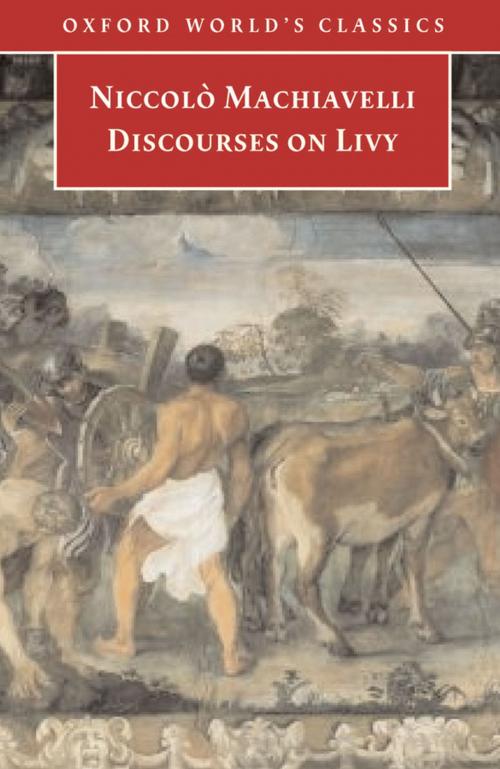Discourses on Livy
Nonfiction, Social & Cultural Studies, Political Science, Politics, History & Theory, History| Author: | Niccolo Machiavelli | ISBN: | 9780191604669 |
| Publisher: | Oxford University Press, UK | Publication: | September 18, 1997 |
| Imprint: | OUP Oxford | Language: | English |
| Author: | Niccolo Machiavelli |
| ISBN: | 9780191604669 |
| Publisher: | Oxford University Press, UK |
| Publication: | September 18, 1997 |
| Imprint: | OUP Oxford |
| Language: | English |
Machiavelli's commentary on Livy's history of Rome sets out his fundamental preference for a republican state. This translation is richly annotated, providing the contemporary reader with sufficient historical, linguistic, and political information to understand and interpret the revolutionary affirmations Machiavelli made, based on the historical evidence he found in Livy. - ;IDiscourses on Livy (1531) is as essential to an understanding of Machiavelli as his famous treatise, The Prince. Equally controversial, it reveals his fundamental preference for a republican state. Comparing the practice of the ancient Romans with that of his contemporaries provided Machiavelli with a consistent point of view in all his works. Machiavelli's close analysis of Livy's history of Rome led him to advance his most original and outspoken view of politics - the belief that a healthy body politic was characterized by social friction and conflict rather than by rigid stability. His discussion of conspiracies in Discourses on Livy is one of the most sophisticated treatments of archetypal political upheaval every written. In an age of increasing political absolutism, Machiavelli's theories became a dangerous ideology. This new translation is richly annotated, providing the contemporary reader with sufficient historical, linguistic, and political information to understand and interpret the revolutionary affirmations Machiavelli made, based on the historical evidence he found in Livy. -
Machiavelli's commentary on Livy's history of Rome sets out his fundamental preference for a republican state. This translation is richly annotated, providing the contemporary reader with sufficient historical, linguistic, and political information to understand and interpret the revolutionary affirmations Machiavelli made, based on the historical evidence he found in Livy. - ;IDiscourses on Livy (1531) is as essential to an understanding of Machiavelli as his famous treatise, The Prince. Equally controversial, it reveals his fundamental preference for a republican state. Comparing the practice of the ancient Romans with that of his contemporaries provided Machiavelli with a consistent point of view in all his works. Machiavelli's close analysis of Livy's history of Rome led him to advance his most original and outspoken view of politics - the belief that a healthy body politic was characterized by social friction and conflict rather than by rigid stability. His discussion of conspiracies in Discourses on Livy is one of the most sophisticated treatments of archetypal political upheaval every written. In an age of increasing political absolutism, Machiavelli's theories became a dangerous ideology. This new translation is richly annotated, providing the contemporary reader with sufficient historical, linguistic, and political information to understand and interpret the revolutionary affirmations Machiavelli made, based on the historical evidence he found in Livy. -















